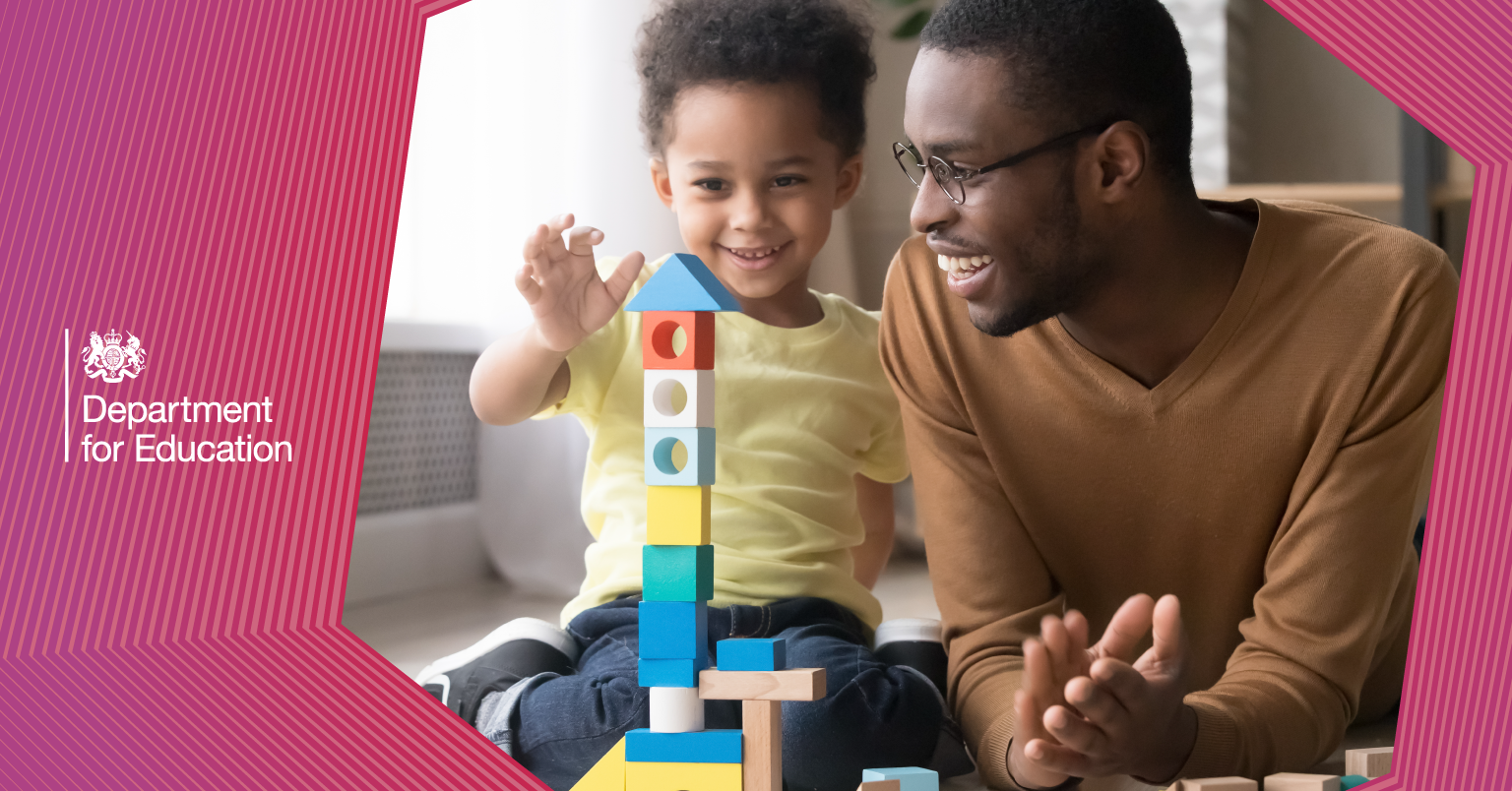
The more you chat, play and read with young children, the more you help develop their brain, and provide them with the skills they need for when they start school.
Wherever you are, simply chatting back and forth, answering your child’s questions, and sharing special moments together helps their brain to grow and develop secure, strong connections.
We’ve partnered with child psychologist Professor Sam Wass to share his 5 top tips on giving your child the best start for life, from when they are babies through to young children.
1. Don’t be afraid to take it slow
Take the time to sit, slow down, and be together with your child.
Babies (0-1 years)
Smiles can often last less than a second, which is too fast for a baby to see. Holding simple expressions for longer than you normally would gives your baby a chance to figure out what you’re saying and how they should respond.
Toddlers (1-3 years)
Toddlers will be starting to use words and gestures to communicate with you, but their early words and gestures will come out much slower than yours do. Don’t be scared to leave silences – wait for them to fill it with what they want to say.
Young children (3-5 years)
You’ll still need to be patient. Although waiting for them to put that final piece into a puzzle can feel like it takes forever, neuroscience suggests that they’ll learn quicker if they do it themselves.
2. Chat back-and-forth together
Healthy development thrives on the simplest interactions within daily routines.
Babies
The back-and-forth exchanges of facial expressions, gestures and non-verbal ‘oohs’ and ‘aahs’ are great to get baby’s brain working. Even when they’re tiny, just copying and mimicking your child’s sounds and faces makes a huge difference.
Toddlers
Try to turn what you think they’re saying into real words – by saying, for example, "Yes, that is the colour red’.
Young children
Early conversations can be very repetitive. But hearing the same words and phrases repeated over and over helps a child’s brain to ‘practice’ processing the speech, and they get better at it over time.
3. Experience little moments together
Babies
You don’t need expensive toys or big experiences – any interaction with baby whilst at home or taking part in a daily routine is a chance to build their brain.
Toddlers
Pick them up so that they can see things from your perspective. Most of the world is designed to be seen from an adult’s viewpoint, and it can be hard for a child to make sense of it. Getting an idea of what you can see helps your child to work out what you’re seeing and thinking.
Young children
Get down to their level physically when you talk to them. This means that your child can see your face. It also helps you to concentrate on what your child is saying to you, without getting distracted.
4. Be curious together
Children are naturally inquisitive. Involving yourself in their curiosity by smiling or answering their questions will help build stronger connections in their brain.
Babies
If baby looks or points at something, try enjoying it too by looking, pointing, chatting back and smiling. Brain studies have shown that waiting until a child points to an object before saying what it is has a greater the impact on the child’s brain activity than if they’re presented with the object first.
Toddlers
Doing this can be trickier with toddlers because they’re always on the move! Keep trying – it can be fascinating to see the little things that make them stop and watch.
Young children
With older children, you can also use language to ask them what they’re curious about. It’s a good idea to ask them what they’d like to do, and to talk about the things that they’ve enjoyed doing in the past.
5. Be creative together
Play is crucial for driving early brain development. Try not to impose any particular play style on your child. Instead, watch what they’re doing, observe closely and show interest.
Babies
Just making a sound is great for their brain development. It helps the wiring patterns in their brain to develop, teaching them about cause and effect.
Toddlers
Children of this age often like doing repetitive things, like stacking blocks in a tower. This early, repetitive play is still creative – repetition helps build strong brain connections – and they’ll benefit from doing it with your support.
Young children
Most children of this age love creative play – such as shared imaginative games. This is where the fun really starts!
Find out more
The Start for Life website is packed with simple ideas from other parents on how to build these little moments into each day. It includes lots of examples of tips and activities for you to do together with your child at different ages, as well as links to find further support in your local area.
A new film has also been released to explain how children’s brains develop during the early years, and the crucial role parents play through all the little moments they spend together with their child. Watch it here.
Your local Family Hub might also be able to provide advice and guidance on boosting your child’s development.